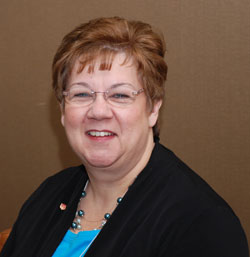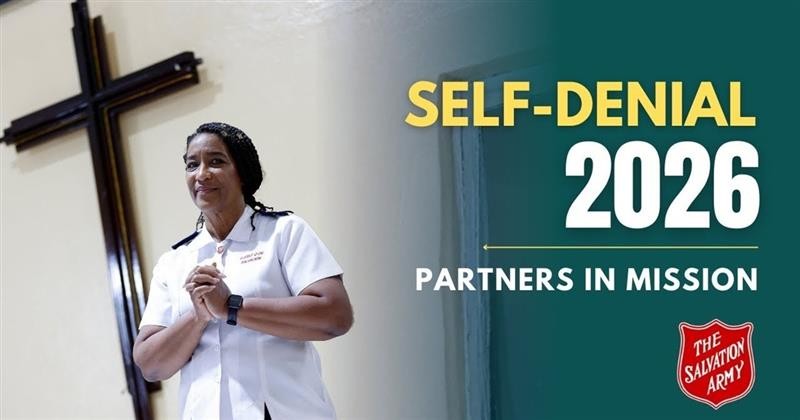
Often when we reflect on the Great Commission (Matthew 28:19-20) and our call as Christians to make disciples of “all nations” we think of missionaries—those who travel to foreign countries to deliver the gospel. In recent years, however, Canada has become the home of people from a wide variety of cultures and nations. They have become our neighbours and members of our community, and so, it is natural that they, when faced with a practical need, enter our social service ministry units and health care facilities.
If we're going to be true and make disciples out of all men and women, we have to be prepared to go to the house next door or the ministry facility down the street. Our country is multi-cultural and so our ministry as chaplains, officers, employees and volunteers must adapt. Learning to minister in a multi-cultural or multi-faith environment is becoming increasingly important.
A New Understanding
When working in a public sector hospital in British Columbia, a new 'sacred space,' or chapel, was being opened and one day, all the spiritual leaders of the various faith denominations held their own hour of blessing. I sat in on many of the services, learning about the different religions and cultures, but it was the Hindu priest who taught me the greatest lesson about multi-faith chaplaincy.
Throughout the service, he would read to the congregation and then translate to me briefly. All of a sudden, he stopped and said, “I know, I know, we pray to many lords and hope that they will bring our request before God. You pray to one Lord and he takes you to God.”
He knew the difference. He knew the truth of my beliefs and he honoured that. What he said to me that day challenged me to learn about other faiths and belief systems so that my ministry would be filled with understanding. In doing so, the base of my witness can be strengthened.
Offering Respect
My ministry as a chaplain—to fellow staff, clients, residents and patients—must also be based on respect, as Jesus' was. The story of Jesus at the well in Samaria (see John 4:1-42) exemplifies this. He sat down until the Samaritan woman came to draw water, and then he asked her for a drink.
In Jesus' day, there was no reason for him to interact with the woman. Jews and Samaritans did not mix, and women had less value than children. But Jesus saw the woman as a child of God—made in his likeness—and he was intentional about speaking with her. When he did speak with her, he said, “I have a need, can you help me?” He didn't say, “I have everything you need,” instead, he placed value on the woman and her ability to help him. And then the conversation began.
Offering respect to clients, placing value on what they can give you and recognizing that they are a child of God can speak volumes to people of whatever background about our God.

I recall an example of a Muslim woman who ended up at a Salvation Army shelter for abused women and their children. The chaplain was trying to figure out how to let the woman know that God will help her in the healing process. So the chaplain brought her into her office, and allowed the space to put down her prayer mat. And as that woman knelt on her mat, the chaplain knelt at her chair and prayed for the woman to the God that she knew.
As the Muslim woman began to pray, the tears began to flow. She realized that our God allowed her the space, safety and security to openly mourn her broken marriage and the fact that her husband abused her. She realized the value that this chaplain placed on her and how that came from the God who offered her salvation through Jesus Christ. The God that we know and understand showed himself that night through the chaplain's respect of another faith.
Made in the Image of God
Because we believe in our God-given free will, we can respect other's chosen faiths. Of course, we believe that only Christ is the way, the truth and the life, and with knowledge and respect we can endeavour to persuade—not coerce—others to believe the same. It's challenging, because we know that our mission is to win the world for Jesus. But we need to follow the example Jesus has set for us and that starts with respect and placing value on people for who they are: God's child.
The hard part for Christians and Salvationists is the concern that showing respect and walking alongside another means in some way I am loosening the grip or letting go of the standard of faith in which I believe. But we need to learn how to be solid and to know that our God is big enough to let us do that because these are his people, too. Walking alongside others doesn't change the truth or our belief. It simply demonstrates the powerful love that God has for all of his children.
Going Deeper
“Interpathy” is an important component of multi-faith ministry because it is about intentional ministry. It is moving one step further than empathy; it involves caring and identifying with another and being present in the moment.
The first aspect is interpathic caring. This means recognizing that this person is a separate other from us, but that we share the similarity of being made in the image of God. Then the caring side comes from saying “teach me”—as Jesus did at the well. He started with “I care for you,” then “tell me more about you so I can care deeper.”
Interpathic identification is then recognizing the individuality of the person with whom you are speaking. Recognize that they are an individual and their life story is different to yours. Finally, step in as a reminder of God through interpathic presence. It's not just saying that God is merely present, but he is active in my life and yours.
All Salvationists can engage in multi-faith ministry, even if they are just sitting on a bus. When you hear or meet someone, listen to what they are saying and the beliefs they are expressing. Recognize that those beliefs have value to them.
Just as we want people to recognize that our faith has value to us and we want them to listen to us, we need to do the same and come alongside, listen intently and respond hopefully. Through doing that, our clients, colleagues and friends will get the feeling of interpathic presence, that there is something to our God.
Tips for Inter-Faith Ministry
- Know what you believe and don't apologize for your faith.
- Have sufficient competence in your own experience, relationship and beliefs to see through another's eyes.
- When ministering to other faiths, look for similarities. If you can't find any, remember that they are made in God's image.
- Let God be God. He is big enough to let you walk alongside others' worldviews without diminishing/losing your own.
- Remember that God gave us free choice and we need to respect others' freedom to make their own choices. True commitments to Christ would be rare if Christianity was the only option.










Comment
On Saturday, December 8, 2012, Joan Wilder said:
Leave a Comment